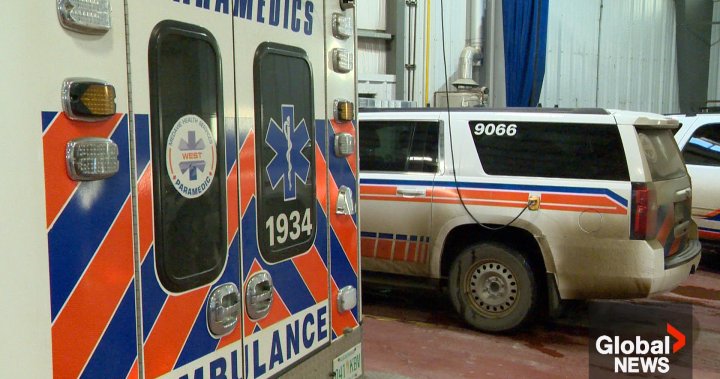
‘They took it upon themselves’: Saskatoon first responders go ‘above and beyond’
Global News
First responders are the front line of defense against emergencies — and there are times when going the extra mile is required to help residents.
First responders are the front line of defence against environmental, security and medical emergencies — and there are times when going the extra mile is required to help residents.
First responders often go above and beyond the call of duty in ways you might not expect.
Whether it’s delivering clothes and food to those in need or delivering a baby on the side of the road, Const. Heather Primeau says first responders need to be prepared for just about anything during their days.
“It’s very different, but very cool,” Primeau says. “I mean, you don’t plan to come to work and deliver a baby. So I think that would be really neat. Definitely different when you don’t know what your day is going to bring. And then something like that is very rewarding.”
While incidents like baby deliveries are uncommon for police, Primeau says going above and beyond what’s expected of officers helps foster trust in the community.
“SPS in general has a great relationship with the community and we definitely like to build those relationships and the partnerships with them.”
Troy Davies, a city councillor and Medavie paramedic until the new year, says even simple acts of kindness can mean the world to those they help.
“A family who didn’t have a whole lot of money to have Christmas presents. So they (paramedics) took it upon themselves to go inside and give the kids Christmas gifts. And I know that was something that was definitely above and beyond. It’s something that we didn’t really know that they were doing or something they took on themselves and made an impact on the lives of those children and that family that they’ll probably never forget.”

A new report from the Angus Reid Institute shows that Saskatchewan residents are struggling financially or feel they’re in uncomfortable positions. Experts say it’s due to the high cost of living and stagnant wages. Katherine Ludwig breaks down the report and talks with experts about the reasons behind the struggle.










